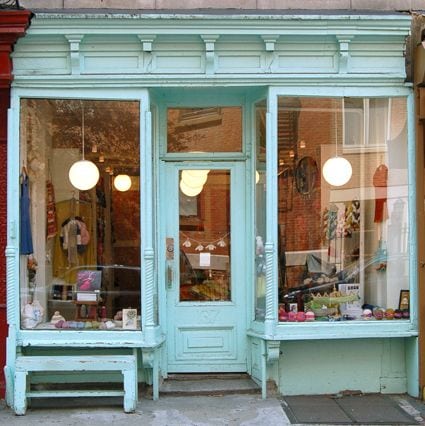
Out Selling Your Big Box Neighbors? Yes You Can!
Even with the push to “shop local” many independently run retail shops are still finding it difficult to compete against the big box stores that operate alongside them. Those larger stores are able to offer a wider variety, lower prices, etc. than most independent and family run shops. The good news is that you don’t have to be big and fancy to compete with the big boxers. No! To compete, you don’t have to use or adapt to their standards, you use your own strengths to your advantage. Believe it or not, small and local offers much more than big boxes ever will. Why? Because your strengths are your customer service and ties to the community. Here’s how to leverage them.
Quaint Vs. Out of Touch
Sure you want your store to feel quaint and personal. This does not mean, however, that you should do everything by hand, especially where your record keeping and marketing are concerned. You also don’t have to use the same CRM software as everyone else. Yes, Salesforce is good but it has plenty of competition – and those competitors might be a better fit for your shop. For example, you might want to be able to call up a customer’s purchase history if they can’t remember what they’ve bought from you before (this is especially helpful in arts and crafts centric shops). Choose a CRM solution that is robust in these areas.
Your tech doesn’t have to outshine your service. Just make sure that you have the technical capabilities to satisfy your customers. For example, you can use services like Square to run credit and debit card transactions if you don’t want to have to buy complicated and expensive POS systems. Don’t assume that you should only take cash.
Customization is Key
One of the best things about being a small indie shop is that you can adjust your inventory according to your clientele, your neighborhood, etc. For special one-off type orders, you can work with drop shippers and other providers to get the rare and rarely requested inventory items. This is where your personal connection to your local area is important. You’ll be able to set up your shop so that locals feel comfortable shopping there and want to do business with you instead of a nameless corporation.
Personalization
Personalization is the biggest part of customizing your shop to cater to your local clientele. There are a number of factors that play into good personalization. The good news is that, unlike your big box neighbors, you won’t have to hope that generics like using a customer’s name or their last purchase in an automatic email field to get them back through the door.
You can actually set up your email marketing to cater to the people who are shopping in your store because you will likely get to know them. This means that you can filter your email lists when you have specific sales going on or when new products you know they’d like come in.
You can also set up “favored customer” deals like setting aside items you know they would like before putting the rest of the order onto your sales floor. Comic book shops often do this with “subscription boxes.”
Customer Service
Your big box neighbors will train their swath of employees to offer at least the basics of customer service. For them, however, those skills are only as useful as their ability to drum up their next sale. You and your employees, however, will treat your customers like family. Teach your employees to remember customers’ names and some basic details like their birthdays and anniversaries, their kids, etc. Teach them to be good to customers even when they seem them out in the world away from the shop. Send little trinkets of affection at the holidays. Your customer service is what will make people choose you over your generic neighbors.
Big Box stores are all about the numbers. You are going to be all about your people. This, along with the standard stuff like taking part in community events, doing community service, etc are what will keep you open even after your competitors roll up and move away.















Jay David
Every one of these suggestions, Quaint vs. Out of Touch, Customization, Personalization, and (World-class) Customer Service, I have stressed time and time again to my employees and co-workers when I worked for The Men’s Wearhouse and Taco Bell. Currently I am not a indie retailer. But I hope to be one day.
Nicole… Its nice to know I’ve been doing the right thing throughout my retail career. So does that make me a “NBIR” (Natural-born Independent Retailer)? Take care! You’re the best!
Nicole Reyhle
Sure sounds like you have the right mindset to be one! Wishing all the best!